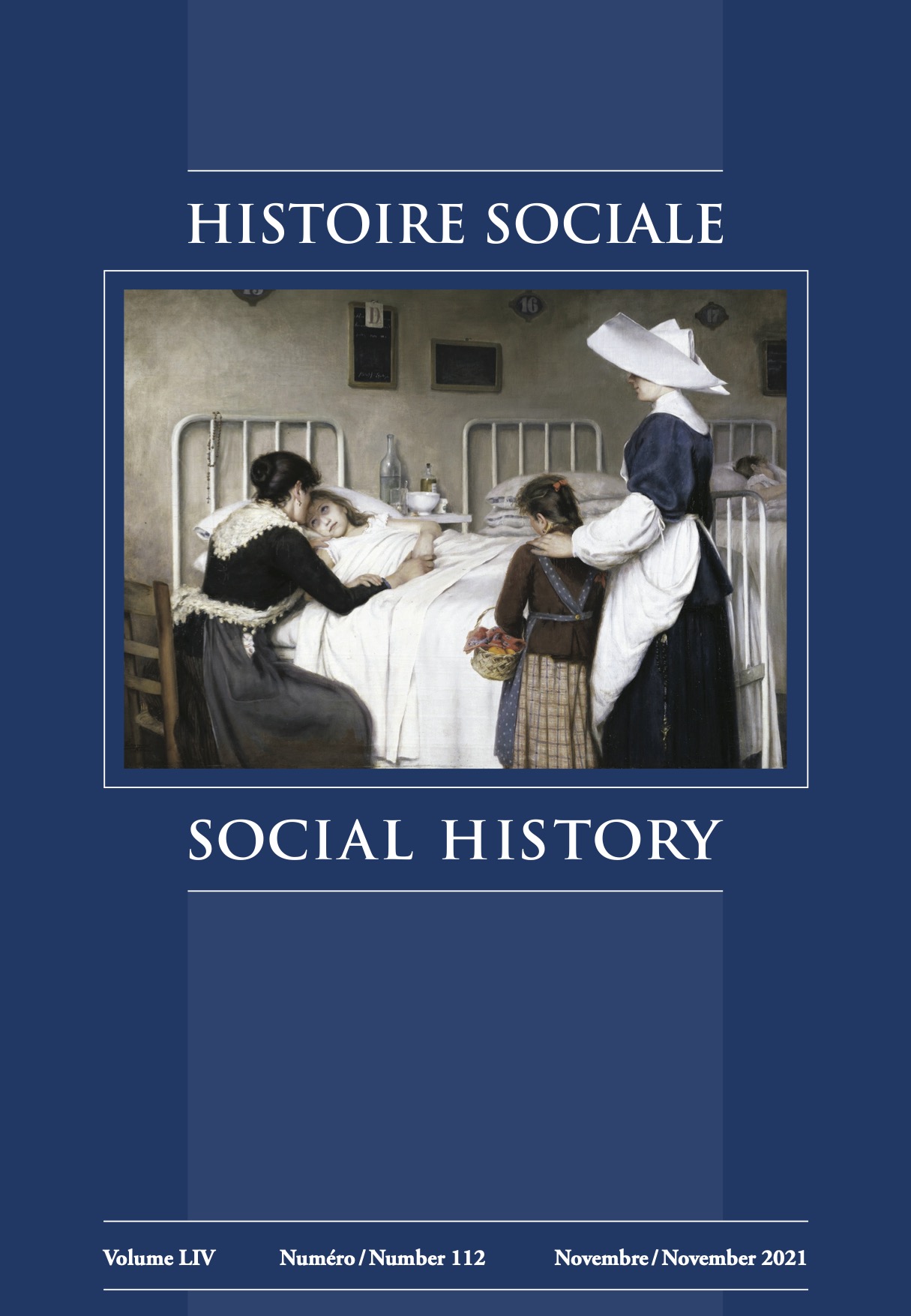Le corps des enfants, l’« essor de l’autisme » et l’expertise parentale : la marginalisation du corps dans l’histoire des enfants présentant des difficultés cognitives et comportementales
DOI:
https://doi.org/10.1353/his.2021.0056Abstract
Autism diagnoses have exploded since 1980. Yet this rise has not been well situated within the long historiography of childhood. In this article, we propose using the concept of “embodiment,” as it is understood and used in disability history, to address this lacuna. We first define the “expansion of autism” and explain why the body is relevant to the historiography of autism and developmental disabilities. Second, we revisit the literature on the history of children living with cognitive and behavioural differences between 1880 and 1980. We stress that experts were already interested in the body of children throughout this period, and it helped structure their understanding of the disability. Third, by drawing on recent research from Quebec, we demonstrate how, from 1980 to 2010, the “expansion of autism” led to an “eclipse of the body” that transformed the situation in which parents found themselves. This working hypothesis helps us to consider the history of parents and children who, from the nineteenth to the twenty-first century, tie their lives to a multitude of fluctuating, often uncertain, diagnoses.


